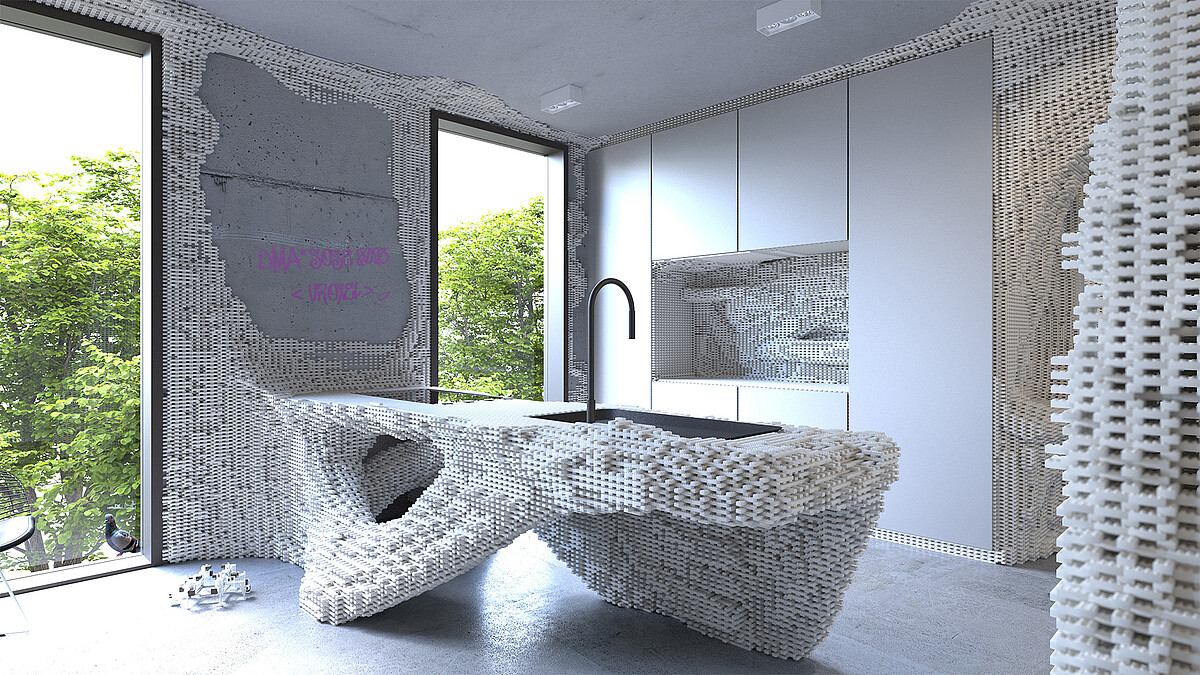Class
There are two ways to achieve circular construction: firstly, to reuse materials that are in the cycle and secondly, to develop new types of construction elements that can easily be reused to remain in the cycle for as long as possible.
The dMA department has been working for several semesters on reversible and discrete construction systems in which small building blocks can be assembled into large structures and easily taken apart again. This way of design and construction has been continuously developed in BSc. theses, prototypes and projects. This interest is being continued in the current semester in the BSc. thesis. A particular focus is on the development of architectural details that create transitions from the rigid construction logic of discrete systems to other building elements, such as windows, doors, technical fixtures, insulation, sealing, etc. The design task will be the extension of an environmental education centre in Lower Saxony.
Like previous BSc. theses, the design also deals with existing buildings. For this purpose, the site will be recorded by means of a 3D laser scan and made available for the design.
Formally and constructively, a system of small-scale building blocks will be developed. The main design medium will be the VRoxel software developed at the department, which allows intuitive design with 3D scan data, motion capture recordings, imported 3D geometries and millions of tiny building blocks in virtual reality. In an accompanying seminar, the digital methods necessary for the elaboration of the design will be deepened.
Info
Modules:
- BSc. Architektur:
Bachelorthesis
Lecturer:
- Prof. Mirco Becker
Schedule:
- First Class: Thursday 05.10.2023
14:00 - 16:00 dMA DMeeting Desk - 1st Colloquium: 10.11.2023 12:00 -15:00
2nd Colloquium: 08.12.2023 12:00 -15:00
small Foyer - Submission: 28.06.2023
- Presentation: 10.07. - 12.07.2023
Further info on stud.ip




